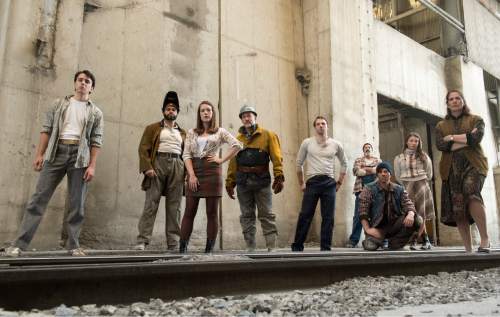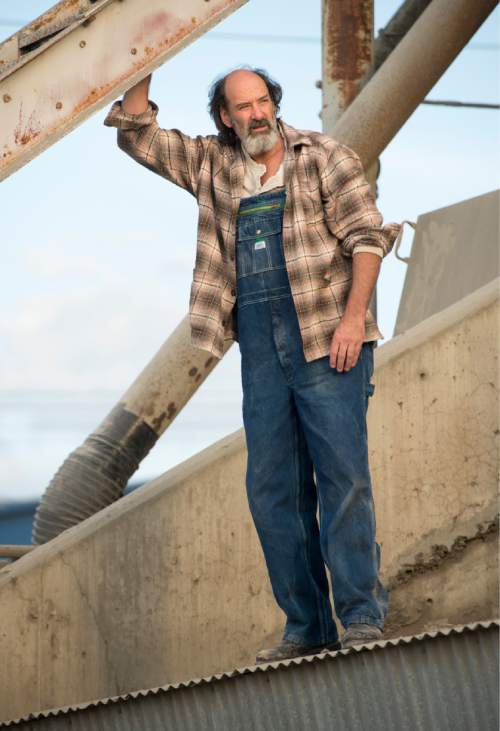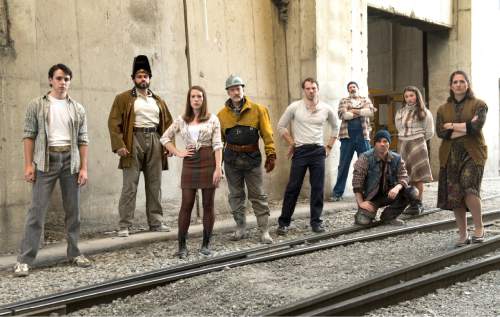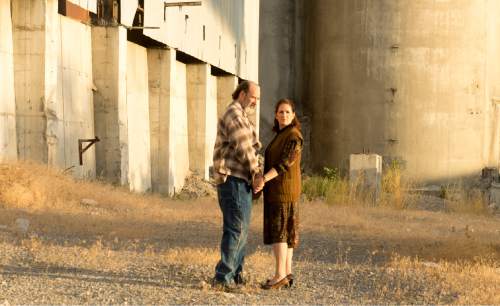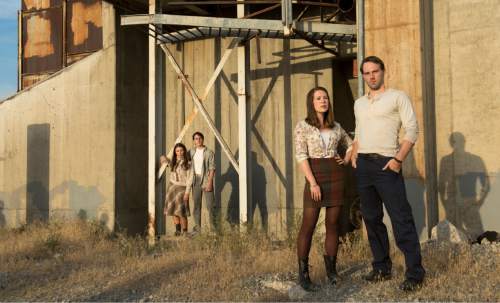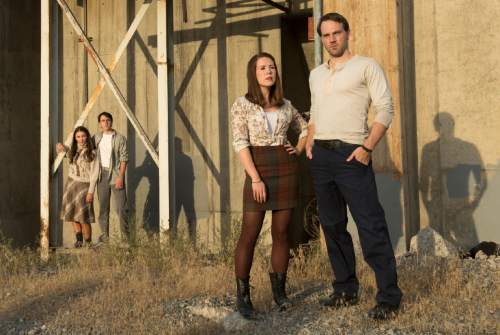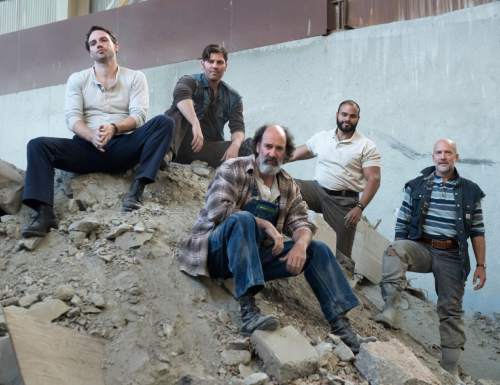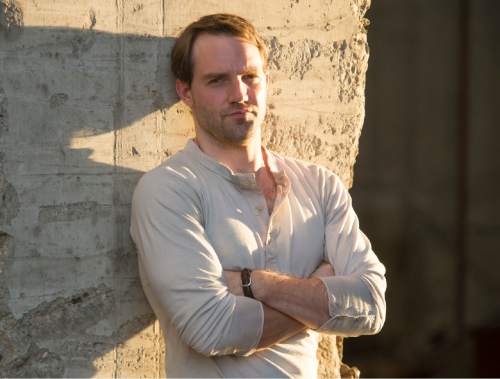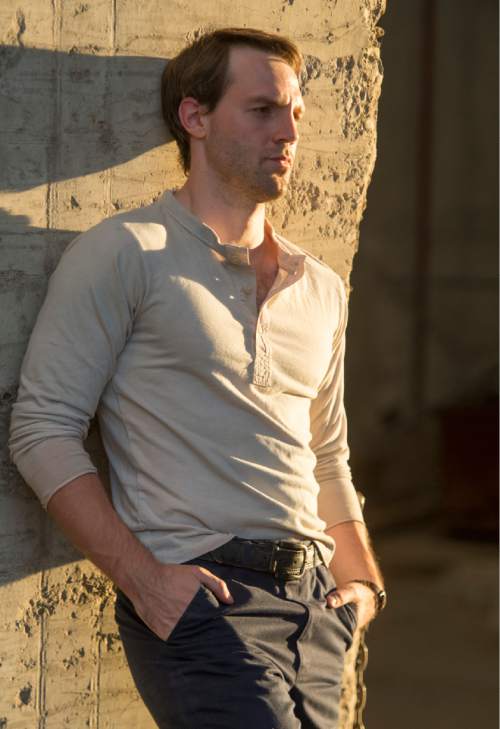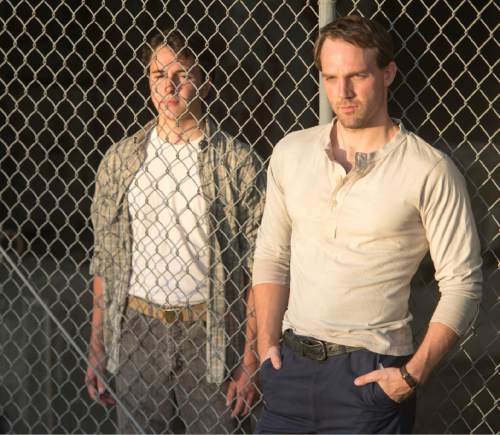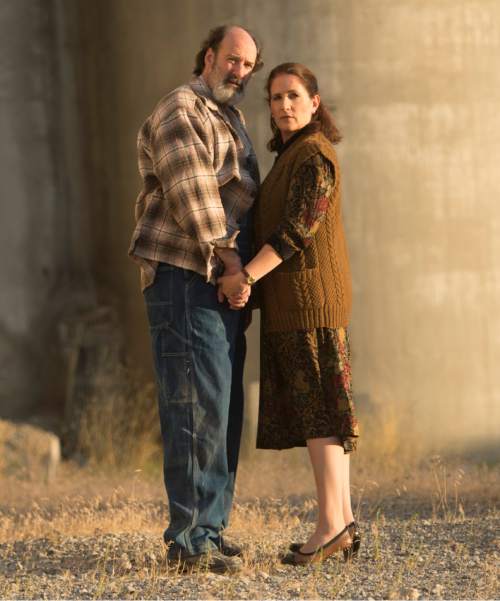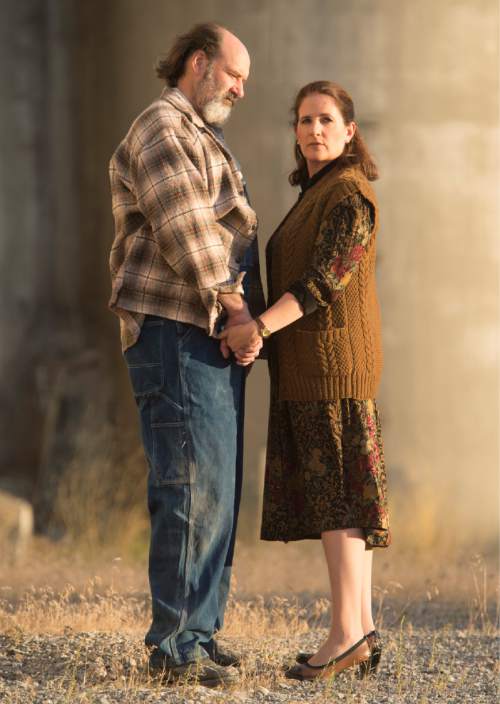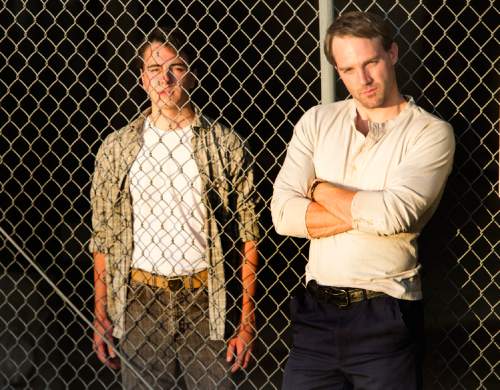This is an archived article that was published on sltrib.com in 2016, and information in the article may be outdated. It is provided only for personal research purposes and may not be reprinted.
Sting says he's very excited to come to Salt Lake City "and see this new version of my play, which I love."
In writing the score of the 2014 Broadway musical "The Last Ship," the 16-Grammy-winning rock star famously drew upon the shipyards and characters of his hometown of Wallsend in northeastern England.
The $15-million production earned Sting a Tony nomination for his multilayered score, but the musical's book by John Logan ("Red") and Brian Yorkey ("Next to Normal") received mixed critical reviews. Even Sting's monthlong performance as shipyard foreman Jackie White couldn't stop the close of the show in January 2015 after 29 previews and 105 regular performances.
Now in a regional premiere, Pioneer Theatre Company is reviving the show through the fresh eyes of director/choreographer Karen Azenberg. The story is anchored in what Azenberg calls "a gorgeous score" and universal themes about the value of work, community and reconciliation with your roots.
"The Last Ship" tells the story of Gideon Fletcher, who returns to Wallsend, the economically depressed shipbuilding town he escaped 15 years earlier. In his hometown, Gideon attempts to reunite with Meg, the love he left behind, but she has moved on to focus on a new relationship and rearing her 15-year-old son.
While in town, Gideon becomes embroiled in the efforts of union leaders and the town's wise and salty Irish priest, Father O'Brien, to occupy the closed shipyard so workers can build one last ship. "A man's work is a sacrament, isn't it?" the priest says. "An outward sign of inward grace." In addition, the priest urges the young man to reconcile his memories of his father.
Azenberg expresses her respect for the original production, co-produced by Jeffrey Seller, who went on to stratospheric success with "Hamilton." What Salt Lake City audiences will see are her efforts to focus the storytelling.
Azenberg has been working with Sting via email, requesting what she terms some "very, very minor script changes," including rearranging the order of some scenes, to focus more attention on Gideon and Meg's backstory.
"I always believe a show is wildly influenced by the actors you have," Azenberg says, praising the talent of Pioneer's 23-member cast, which includes a strong core of Broadway veterans, such as John Jellison as Father O'Brien. Jellison's extensive Broadway credits include "Motown," "Phantom of the Opera," "Caroline, or Change," "Oklahoma!" and "Paul Simon's The Capeman."
She hopes the script changes will provide clarity to the story's timeline, coupled with a stronger onstage presence for the younger characters of Gideon and Meg, as remembered by their older selves.
"I'm there to learn," Sting says of his plan to come to Simmons Pioneer Theatre for the show, in between promoting his first new rock album in 13 years, "57th & 9th." The album is scheduled to drop in November, on the heels of the already-released single, "I Can't Stop Thinking About You."
"I'm there to see how a different interpretation can work, and if we can steal some things for future productions," he said. "I think the play will have a life, a long life. "
In an interview, Sting promises he won't be in the audience on opening night, as he doesn't want to bring additional pressure to the cast. "I want to be a quiet member of the audience, until the end," he says, adding that then he will "absolutely" be standing up cheering the loudest.
In his 2003 memoir, "Broken Music," Sting wrote about his struggle to leave his economically depressed hometown, as well as his estrangement from a taciturn father and a mother caught up in an affair. Among his earliest memories are the imposing presence of ships at the Swan Hunters shipyard blocking the sun at the end of the street where he grew up.
After a three-decade career as a musician, after the success of The Police and his subsequent solo career, Sting fell into a years-long stretch of writer's block. It wasn't until he set out to write a musical about his hometown that the musician's creative desert was irrigated, as The Washington Post's Peter Marks wrote in 2014.
The musical was partially rooted in the narrative songs Sting wrote for his 1990 album, "The Soul Cages," which coincided with a reunion with his estranged father. Other more literal inspirations included newspaper accounts of Irish shipbuilding work-ins in the 1970s and a Poland priest, who in 2009 led homeless shipbuilders in an effort to raise a ship on their own.
"It's ironic that the landscape I'd worked so hard to escape from, and the community that I'd more or less abandoned and exiled myself from should be the very landscape, the very community I would have to return to to find my missing muse," Sting said in a March 2014 TED talk about "The Last Ship."
In an interview, Sting expanded on that theme. The play's an allegory, not straight autobiography, the singer says, no matter how reminiscent the name of Gideon, the show's lead character, is to his given name of Gordon.
"You're always looking for inspiration, and sometimes the only way to go is to go back into your own history, your own roots," Sting says. "It's sometimes painful to do that, but it's always helpful, as you realize the person you are was formed in those times and in that environment."
He continues: "I was not specifically writing about myself, though I probably gave more away in writing these songs then I intended. It was therapeutic, if sometimes painful."
Sting invested five years of his life in writing the play, attending auditions and rehearsals while writing and rewriting the score. In the process, he learned the art of writing for musical theater, albeit songs flavored by the sea shanties and folk tunes of his British roots. He drew upon his experience crafting narrative songs, as well as knowledge of classic Lerner and Loewe and Rodgers and Hammerstein musicals, learned from his mother. "I can sing bits of 'Carousel,' or 'Oklahoma!' if you want," he jokes on the phone.
But the musician also faced a learning curve. "You can't just tread water with one emotion for three minutes, the plot has to be advanced," Sting says. "Economy and brevity are absolutely at a premium. They will cut your song like that, they will cut a line, they will cut your finest couplets on the floor. One of the most challenging things about writing songs for a musical is they are fighting for their life their whole way through rehearsals."
Singing "The Last Ship" in Pioneer's New York auditions in front of Sting was a bit intimidating — but also thrilling, Jellison says.
The song is one of his favorites, the actor says, as he first sang it five or six years earlier while performing in a Broadway workshop of "The Last Ship." At the time, Jellison's father, an Episcopal priest, was terminally ill.
"That song is a big deal for me," he says, as it reminds him of his father, as does portraying the priest who serves as the story's moral center.
The actor calls Sting's score "varied and interesting and quite lovely."
Sting says he's proud of the show's authenticity and hopes it will receive more productions.
That's part of Azenberg's ambition, too, as she hopes Pioneer Theatre Company can foster more new shows, spurred by such projects and last season's professional premiere of Frank Wildhorn's "The Count of Monte Cristo."
"We are a really good place to try out things," she says. "We can produce shows on a large scale that you could envision in a Broadway-size house. We are in a real city, with real production support, but far enough away" from prying eyes, she says. "We want to pick the right shows for us — for our audience — and shows that might be able to have a life in the bigger theatrical world."
facebook.com/ellen.weist Sting's 'The Last Ship'
The musical features a book by John Logan and Brian Yorkey.
When • Sept. 16-Oct. 1; 7 p.m. Monday-Thursday; 7:30 p.m. Friday-Saturday; with 2 p.m. Saturday matinees
Where • Simmons Pioneer Memorial Theatre, 300 S. 1400 East, University of Utah campus, Salt Lake City
Tickets • $40-$62, $5 more day of show; (Students K-12 are half-price on Monday and Tuesday),at 801-581-6961 or pioneertheatre.org
Note • The play contains adult language


